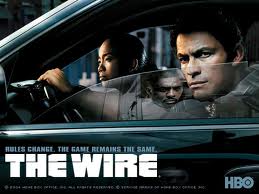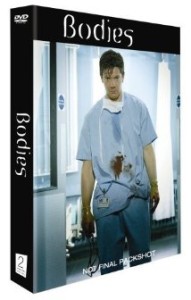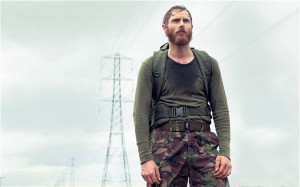It all started with ‘The Sopranos’. I think we can all probably agree on that. Yes, they were other examples of quality TV coming out of the states before that. Twin Peaks, Oz, NYPD Blue and Homicide: Life on the Streets were all excellent shows. But the Sopranos changed everything. Rarely, if ever before had a television series confronted the deeper questions of the human condition with such consistent brilliance. It changed forever what people accepted TV drama was capable of. I’m certain I’m not the only person who, in their mid 20’s, actually forewent nights out with friends in favour of watching Tony’s latest existential crisis, Paulie’s latest act of duplicitous cowardice, Carmella’s ever-increasing hypocrisy, or Christopher’s spiraling addiction. Not only was the plotting superb, the direction was as taught as any Scorcese crime opus, the writing as good as anything to come out of the golden age of 70’s Hollywood, and the late, great James Gandolfini regularly produced work that was comfortably the equal of De Niro and Brando at their best. The show was a critical and ratings hit, and swept up award after award, and HBO had clearly raised the bar.

From thence came a slew of US shows primarily, but not exclusively from HBO, shows like ‘Six Feet Under’, ‘Deadwood’, ‘The West Wing’, ‘Entourage’, ‘Mad Men’, ‘Boardwalk Empire’ and, of course, David Simon’s masterwork ‘The Wire’. The production line of quality American network television shows little sign of letting up either, with ‘Ray Donovan’ already looking like it may well fill the Sopranos and Wire shaped holes in many lives.
By comparison, British TV during these years has, at times, looked almost embarrassingly poor. There have been great shows, notably ‘Our Friends in the North’, ‘State of Play’ and the criminally underrated ‘Bodies’. But these felt like the exception rather than the rule, their excellence providing a frustrating glimpse of what we were still capable of when we tried. None of these shows provided Brit telly with a Sopranos style watershed moment, and our best writers, directors and actors continued to move to America in search of consistently good film and TV work (and better pay cheques, naturally. Charlie Hunnam was paid more for the pilot of ‘Sons of Anarchy’ than he was for two entire series’ of ‘Queer as Folk’). We seemed to have regressed a long way from the days when the likes of Dennis Potter, Alan Bleasedale and Jimmy McGovern regularly dominated the TV schedules.

Recently though, there have been encouraging signs that things might be slowly starting to change. BBC2’s ‘The Hour’ assembled an excellent cast and had production values to rival Mad Men. Some of the plotting stretched credulity slightly at times, but it was a massive step in the right direction away from tripe like ‘Spooks’ and ‘Silent Witness’. Soon after that came the gripping ‘Line of Duty’ from Bodies creator Jed Mercurio, which has recently been commissioned for a second series. The Christopher Eccleston starring ‘Blackout’ eventually buried itself under fancy camera work, but there was plenty to like, and again, it was a step in the right direction. This trend has continued, with Jane Campion’s ‘Top of The Lake’ emulating the slow-building drama of recent shows from Scandinavia (another region whose recent output has left us behind). Channel 4 has also started getting in on the act with the complex and brilliant ‘Utopia’ being granted a second series, and the recent ‘Run’ gaining strong reviews. This is perhaps the most encouraging factor of all, with Channel 4 apparently now ready to shift their attention and budget away from bilge like ‘Big Brother’ and back to the hard-hitting, issues based dramas they were once renowned for. Perhaps best of all, the sombre, harrowing ‘Southcliffe’ (currently running across consecutive nights) looks like it could well be one of the most adult dramas we have seen on our screens for a very long time.

Britain may never be able to compete with the sheer volume of shows coming out of the vast American networks, but there is no reason we shouldn’t be competing, or even setting the standard, when it comes to quality.



